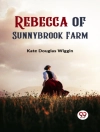F. Scott Fitzgerald’s seminal works, The Great Gatsby and The Beautiful and Damned, epitomize the disillusionment of the Jazz Age while exploring themes of aspiration, wealth, and the elusive nature of the American Dream. The Great Gatsby unfolds through a vivid, lyrical prose style, immersing readers in the opulent yet hollow world of 1920s America, where the tragic figure of Jay Gatsby symbolizes both hope and futility. In contrast, The Beautiful and Damned offers a gritty and introspective narrative concerning the lives of Anthony and Gloria Patch, whose descent into decadence and moral decay reveals the darker undercurrents beneath the surface glamour of society at the time. Both texts are remarkable for their rich characterization and insightful social commentary, underscoring Fitzgerald’s role as a chronicler of his era. Fitzgerald, born in 1896 and a prominent figure of the Lost Generation, faced struggles with both personal ambition and societal expectations. His tumultuous marriage to Zelda Sayre and their ensuing financial problems provided him with the experiential foundation to depict the complexities of love and ambition in his works. The author’s keen observations of the Roaring Twenties, characterized by prosperity and excess, allowed him to produce incisive critiques of the era’s moral fabric, particularly evident in both The Great Gatsby and The Beautiful and Damned. These masterpieces are essential readings for anyone seeking to understand the intricate dynamics of the American Dream and the era’s social dilemmas. Fitzgerald’s masterful storytelling, paired with his profound insights into human nature, invites readers to reflect on the aspirations and disillusions that define the human experience. Dive into these narratives to uncover the timeless truths about love, ambition, and the ever-elusive pursuit of happiness.
เกี่ยวกับผู้แต่ง
F. Scott Fitzgerald (1896–1940) is widely regarded as one of the greatest American writers of the 20th century. His literary career is marked by his remarkable ability to capture the spirit of his age—the Roaring Twenties—with its opulent highs and despairing lows. Fitzgerald’s novel ‘The Great Gatsby’ (1925) is considered a masterpiece of American literature and is an exquisitely crafted tale of loss, love, and the elusive nature of the American dream. Similarly, ‘The Beautiful and Damned’ (1922), which precedes ‘Gatsby, ‘ explores the self-destructive tendencies of the elite and the dissolution of marriage amid the backdrop of hedonism and moral decline. Fitzgerald’s narratives often revolve around the themes of wealth, ambition, and the dazzling but destructive allure of status and success. His works are heralded for their rich symbolism, lyrical prose, and deep psychological insight into the complexities of human nature and the American experience. A member of the ‘Lost Generation’, Fitzgerald’s personal life was as tumultuous as his professional one, with his marriage to Zelda Sayre mirroring the vicissitudes he narrated in his fiction. The tragic dimensions of his life and his battles with alcoholism have often been seen as parallel to the larger existential despair that he portrayed in his characters. Fitzgerald’s legacy continues to influence writers and artists, and his novels remain integral to American literary canon and are widely studied for their craft and cultural significance.












